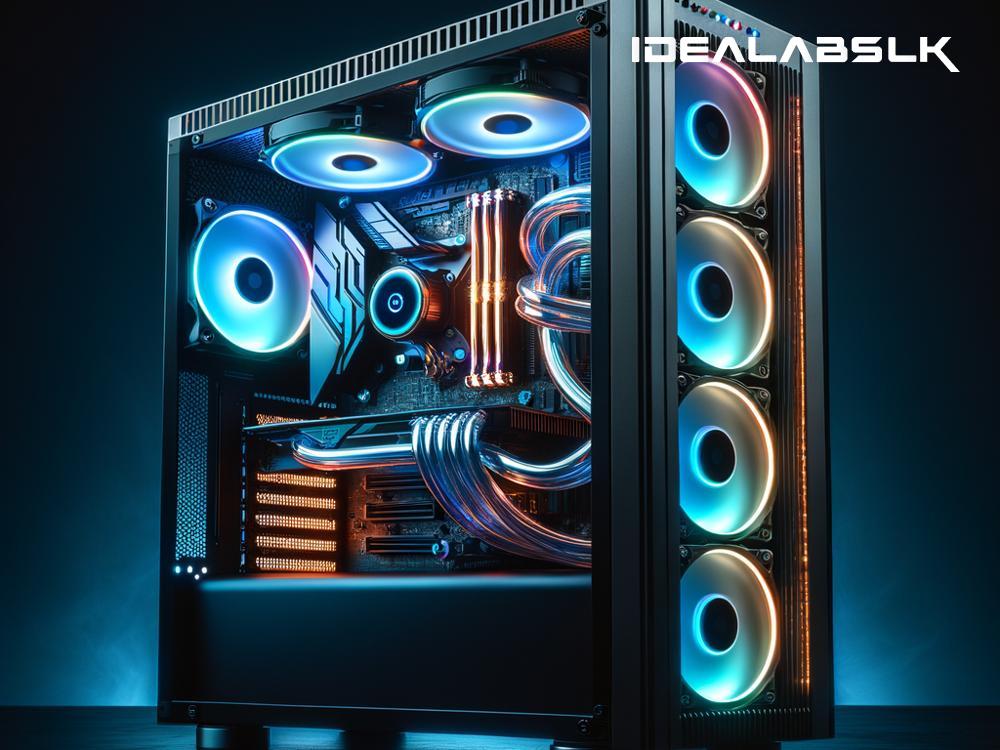Feeling the Heat: Why Cooling Systems Are a Big Deal in High-Performance PCs
If you've ever pushed your laptop or desktop PC to its limits, chances are you've heard it - that loud fan noise kicking in to save the day. It's a sign that things are getting hot under the hood. For high-performance PCs, especially those used for gaming, graphic design, or video editing, this scenario is pretty common. But why is cooling such a big deal, and how does it play a crucial role in these computing powerhouses? Let’s break it down in straightforward terms.
Why Do PCs Get So Hot in the First Place?
Think of your high-performance PC like a sports car. When you're driving it hard, the engine gets hot. Similarly, when you're running heavy software or the latest games, your PC's components, like the CPU (the brain of your computer) and the GPU (the part that handles all the visuals), are working overtime. This generates heat. A bit of warmth is normal, but too much can lead to problems, such as crashes, slowed performance, or even long-term damage to the components.
The Role of a Cooling System
This is where cooling systems strut onto the stage. A good cooling system keeps the temperature down, ensuring that all those important parts inside your PC can operate efficiently without overheating. Think of it as providing a comfortable work environment for the components. If the conditions are right, they can perform at their best.
Types of Cooling Systems
There are mainly two types of cooling systems you'll find in high-performance PCs: air cooling and liquid cooling.
-
Air Cooling: This is the more common and traditional method. It involves fans and heatsinks. Fans move cooler air across heatsinks (often made of metal like aluminum or copper), which have been designed to spread out the heat. This way, the heat is dissipated away from the CPU and GPU.
-
Liquid Cooling: A more advanced option, liquid cooling uses a special liquid to transfer heat away from the components. This liquid flows through a loop, passing heat from the hot parts to a radiator. The radiator then expels the heat outside the system, and the cooled liquid cycles back to repeat the process. It tends to be quieter and more efficient than air cooling, but it's also more complex and can be pricier.
Why Cooling Matters More in High-Performance PCs
In a regular PC used for browsing the web or watching movies, standard cooling might be enough. However, in a high-performance PC, everything is amplified. You're dealing with more power, higher speeds, and consequently, more heat. Without adequate cooling:
-
Performance Could Take a Hit: Processors can throttle themselves to reduce heat, meaning they deliberately slow down. You won't get the performance you paid for if your system is overheating.
-
Shortened Component Lifespan: Continuous exposure to high temperatures can wear out components faster. This could mean costly replacements or repairs down the line.
-
Unexpected Shutdowns: To prevent damage, PCs can shut down automatically if they get too hot. If you're in the middle of a game or a project, this could be frustrating, to say the least.
Knowing Is Half the Battle
Understanding the basics of cooling helps you make better decisions about your PC setup. If you're building a high-performance system, think about the environment it's in (a well-ventilated space is better), and consider investing in a quality cooling solution. It might seem like an extra expense, but it's protecting your investment.
Final Thoughts
Cooling might not be the first thing on your mind when dreaming about your high-performance PC. Yet, it's a silent hero that keeps everything running smoothly. A good cooling system ensures that your machine can handle intense workloads without breaking a sweat (figuratively speaking). So, whether you're gaming, creating, or crunching numbers, remember that keeping cool is key to unlocking the full potential of your PC. Consider it a necessary piece of the high-performance puzzle, ensuring that your system not only performs well today but also lasts well into the future.

